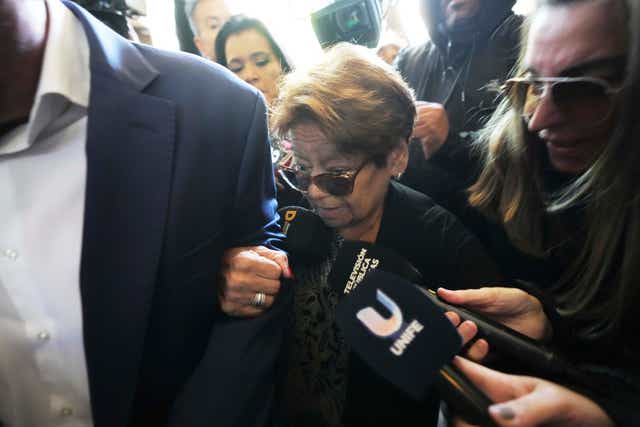Cardiologist testifies Maradona was advised against hospital discharge
Last week, the footballer’s ex-wife and a doctor questioned why he was discharged to recover at a private home instead of a rehabilitation centre.

A cardiologist testified on Thursday that football legend Diego Maradona was classed as a “high-risk patient” and that medical practitioners had advised against discharging him from clinical care.
Olivos Clinic head of cardiology Sebastian Nani testified at an Argentinian court, in which seven healthcare professionals are facing charges for the alleged negligent homicide of the former player.
“He was a high-risk patient who was experiencing withdrawal symptoms and required significant care,” he said of the footballer, who led Argentina to the World Cup title in 1986.
Maradona died on November 25, 2020, days after surgery for a hematoma that had formed between his skull and brain. He was 60.
Last week, Maradona’s ex-wife and a doctor also questioned the decision to take him to a private home following the surgery instead of admitting him to a rehabilitation centre.

The deficiencies in Maradona’s home care are one of the prosecution’s key pieces of evidence against the defendants.
Dr Nani highlighted the differences of opinion between hospital authorities and two of the accused, who were close to the former player.
Neurosurgeon Leopoldo Luque and psychiatrist Agustina Cosachov proposed that his care continue at a private residence in the town of Tigre, located almost 24 miles from Buenos Aires.
The cardiologist asserted that outside the clinic, “Maradona’s responsibility rested 100% with Luque”.
Dr Luque was Maradona’s personal physician for the last four years of his life, while Dr Cosachov prescribed medication that Maradona took until the time of his death.
In addition to Dr Luque and Dr Cosachov, psychologist Carlos Diaz; doctors Nancy Forlini and Pedro Di Spagna; Mariano Perroni, representative of the company that provided the nursing service; and nurse Ricardo Almiron are also on trial.





